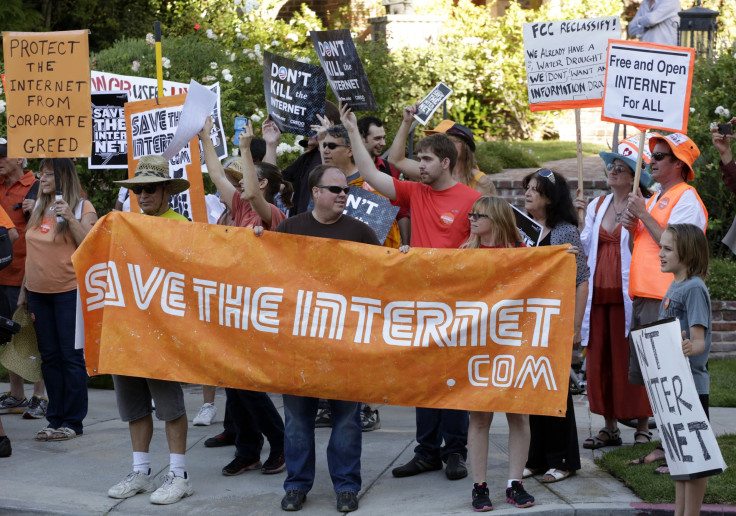Sprint Would Support Net Neutrality Rules, It Tells FCC

Sprint is in favor of reclassifying Internet service providers as “common carriers” it told the Federal Communications Commission on Friday. Proponents of net neutrality argue that such rules are necessary for a “free and open Internet” and would require ISPs to treat all web traffic equally.
Verizon, AT&T and T-Mobile have argued that Title II would discourage them from spending money on upgrading their networks. President Obama said in November that it would prevent ISPs from creating Internet “fast lanes” for those services willing to pay for them. Sprint said it disagrees, and would support Title II regulation.
“Sprint does not believe that [Title II classification] … would harm the continued investment in, and deployment of, mobile broadband services,” the company’s chief technology officer Stephen Bye wrote. "So long as the FCC continues to allow wireless carriers to manage our networks and differentiate our products, Sprint will continue to invest in data networks."
AT&T and Verizon both have landline Internet services, which can be costly to maintain and upgrade, in addition to their wireless businesses. Both have said that Title II would discourage investment in their broadband services, while T-Mobile and Sprint both are exclusively wireless.
T-Mobile has said it does not favor the reclassification, as aspects of its plans -- in which music services do not count against a customer’s monthly data allowance -- would likely run afoul of new rules. Wireless carriers’ voice transmissions are already regulated under Title II, but not their data offerings. Earlier drafts of the FCC’s net neutrality proposals did not apply to wireless data providers, but Chairman Tom Wheeler has said they would likely be included in the new rules.
“I think all along we have recognized there are some instances where prioritization makes sense but there are many other instances where you can buy your way into a better position with deep pockets that we want to look askance at,” Wheeler said at CES earlier this month.
The FCC is expected to vote on new rules for the Internet at a Feb. 26 meeting. Last spring, Wheeler issued a draft proposal that would have allowed internet providers to offer special “fast lanes” to preferred websites, but has reversed course following a backlash that included a rant from comedian John Oliver to protests online and in public.
© Copyright IBTimes 2025. All rights reserved.




















